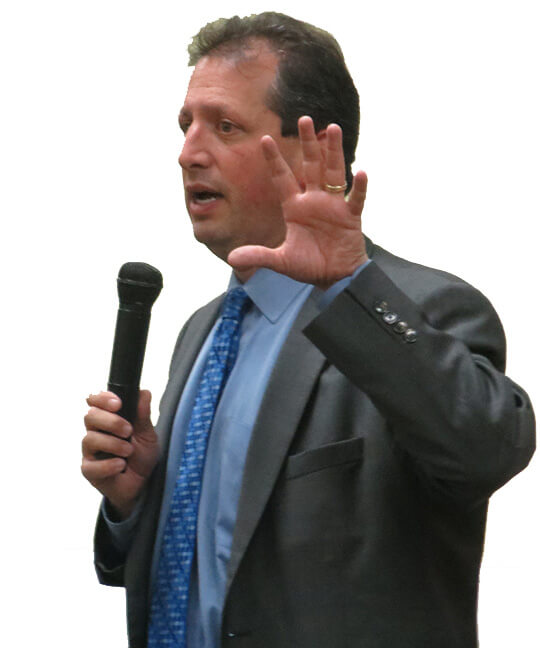Six candidates have their eye on the city council seat once held by Mayor Bill de Blasio in Brooklyn’s 39th district, spanning the neighborhoods of Cobble Hill, Carroll Gardens, Gowanus, Park Slope, Windsor Terrace and Kensington.
In terms of private funds, it’s the second richest race in Brooklyn, with each hopeful having raised more than $30,000 and total fundraising exceeding $350,000. Donors have made it the fourth richest council race in the city overall, behind only the 7th district in Manhattan, the 13th in the Bronx, and the adjacent 40th district in Brooklyn.
It’s the first time in more than a decade that the 39th will be represented by somebody other than Progressive Caucus co-founder Brad Lander, who has reached his term limit and is now running for city comptroller. Lander’s endorsement would be a major distinction for any of the contenders, but so far he’s kept quiet about who he thinks should replace him.
Ideologically, the candidates are kindreds, each touting their own community-focused brand of progressivism that’s very much in the tradition of their predecessor. Lander is held in high regard by candidates across the board, especially for his work on participatory budgeting, which aims to involve communities more directly in how their tax dollars get spent.
But on a personal level, the candidates have a wide range of backgrounds and experiences, sure to resonate with voters in different ways.
Brandon West, whose campaign posters are already a fixture in shop windows along Court and Smith streets, is quick to sloganize himself as someone who knows both the “streets and the spreadsheets.” West worked for the Office of Management and Budget and for the City Council itself as a financial analyst before becoming a voting rights advocate and activist in the Occupy City Hall Movement.
West credits his time as a financial analyst on the council’s transportation and education committees with showing him the nuts and bolts of the city’s bureaucracy.
“I saw how difficult it is from the legislative vantage point to work with the agencies,” West told the Star Revue. “That’s the real challenge of legislating. You’re fighting to get the information to be able to make incremental changes.”
Candidates Mamnun Haq and Briget Rein both count their labor organizing among their most noteworthy bona fides.
Haq, a veteran cab driver, co-founded the New York Taxi Workers Alliance, a union that has sought to amp wages and working conditions for drivers while fighting against the encroachments of the gig economy. It’s impossible not to mention Haq’s harrowing personal tale of being stabbed by a passenger with a hunting knife in 2005, an attack that nearly cost him his life and that has inspired his advocacy ever since.
Longtime teacher’s union worker Briget Rein describes her mentor Randi Weingarten, who is now president of the country’s second largest teacher’s union, as “one of the greatest women I’ve ever met in my life.” Rein served as Weingarten’s deputy political director and dealt with city hall on behalf of the United Federation of Teachers, where she helped to organize the relocation and upgrade of PS 109.
But union organizing isn’t the only type of advocacy work practiced by district 39 hopefuls.
Justin Krebs, a former operative for the progressive nonprofit MoveOn.org, coordinated several national legislative lobbying campaigns, including efforts to thwart a potential Republican repeal of the Affordable Care Act, also known as Obamacare, and another to get the US into the 2015 Iran nuclear deal, aimed at limiting the Islamic Republic’s nuclear energy program.
The Iran deal “was clearly important, but not what you’d think of as the most motivating grassroots issue,” Krebs told the Star Revue. “We were holding accountable people like Schumer who came out against the deal, and celebrating those who came out for it, until we got the 41 votes we needed.”
Disability and women’s rights activist Shahana Hanif was incumbent Brad Lander’s director of organizing and community engagement, playing a role in his participatory budgeting process. Out of the office’s $5 million capital budget, Hanif was tasked to make sure that $1.5 million was decided upon directly by the community.
“We’d collect ideas,” Hanif explained. “Then neighbors volunteered to develop proposals, and then work with city agencies to make sure that they were eligible projects and meeting the needs of community members.”
Former Democratic party district leader Doug Schneider points to his work as a defense attorney to showcase his record on civil rights. An outspoken critic of the NYPD, Schneider says he’s caught beat cops in lies on the stand, and believes the NYPD should stop using military-grade equipment to police peaceful protests.
“I have a deep understanding of the issues that plague the NYPD and the perspective of somebody who’s been in this fight for a long time,” Schneider told the Star Revue.
Schneider wants to “focus on reducing the power that Ed Mullins and Pat Lynch […] have over our city,” calling the police union chiefs “the two most destructive forces in New York City politics.”
City Council elections will be held on Nov. 2 this year, with primaries on June 22. A new ranked-choice voting system will allow voters to list their top five candidates in order of preference, a scheme that proponents say discourages negative campaigning and allows voters to pick their true favorite without fear that they’re wasting a vote.











2 Comments
It’s “Lander” not “Landers”
fixed it, thanks.